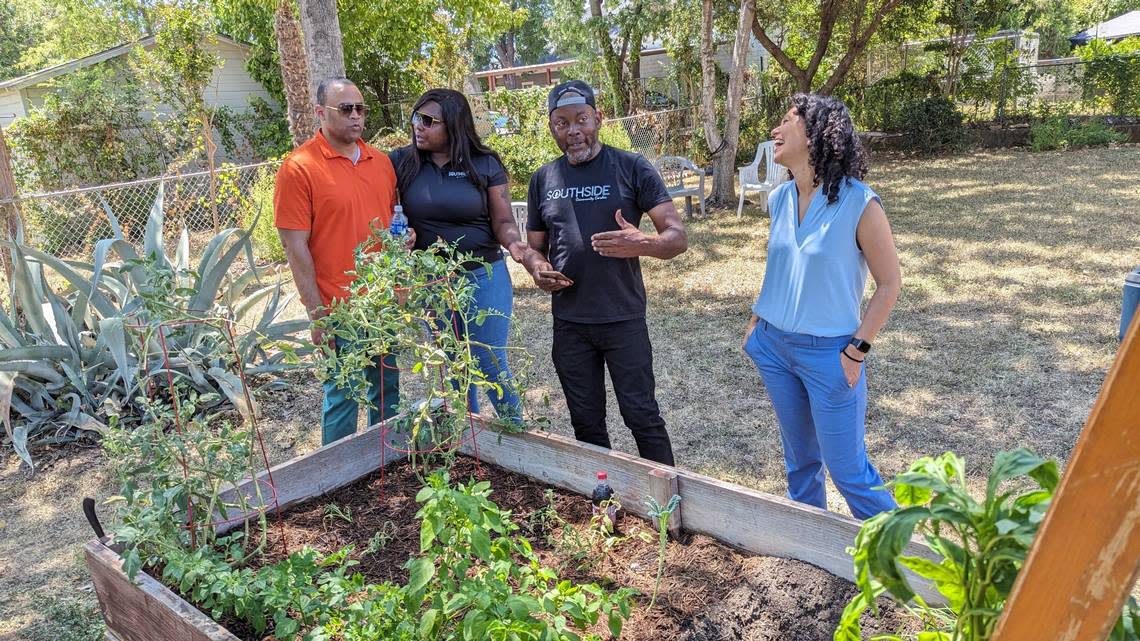Access to food should be a right, Fort Worth nonprofits tell Biden official during visit

There’s a need for more food resources in Fort Worth.
That was the message imparted for U.S. Rep. Marc Veasey and Agriculture Deputy Secretary Xochitl Torres Small on Thursday as they toured the Community Food Bank and the Southside Community Garden.
The food bank, at 3000 Galvez Ave., serves about 500 people a day, but is always looking for more resources, said Rudy Taylor, the director of operations.
“Every day we get about 20 to 30 people who’ve never been here before,” he said. The food bank is also trying to raise about $126,000 for a generator to help protect its building against a potential power outage.
The nonprofit is run independently of government programs, and gets the majority of its supplies through donations from Walmart and Trader Joe’s.
“Anyone who’s having trouble getting food, they’re having trouble with everything,” said executive director Regena Taylor, while showing Veasey, a Democrat from Fort Worth, and Torres Small the food bank’s supply of diapers, toilet paper and baby formula.
In the richest country in the world, access to healthy food should be a right, said Patrice Jones, founder the nonprofit Southside Community Garden.
Her group helps residents in the 76104 ZIP code build backyard gardens to increase access to fresh produce. A 2020 Star-Telegram series examined why residents living in that ZIP code had the lowest life expectancy in the state of Texas.
There are no grocery stores in the 76104 ZIP code, which Southside Community Garden co-founder Alison Pope attributed to the area’s relatively low income compared to the rest of the city.
Pope, who also works for the city of Arlington’s economic development department, said grocery stores typically like to open in areas where the median income is $10,000 or more above the city’s average, citing a department study.
The median household income in 76104 is roughly $26,000 lower than the city’s $67,927.
The USDA has programs to help low income areas get access to healthy food, Torres Small said. She pointed to the urban agriculture program that has helped build community gardens in Dallas.
“It’s all about local food systems and making sure we’re connecting food that’s produced to a market close by,” she said.

